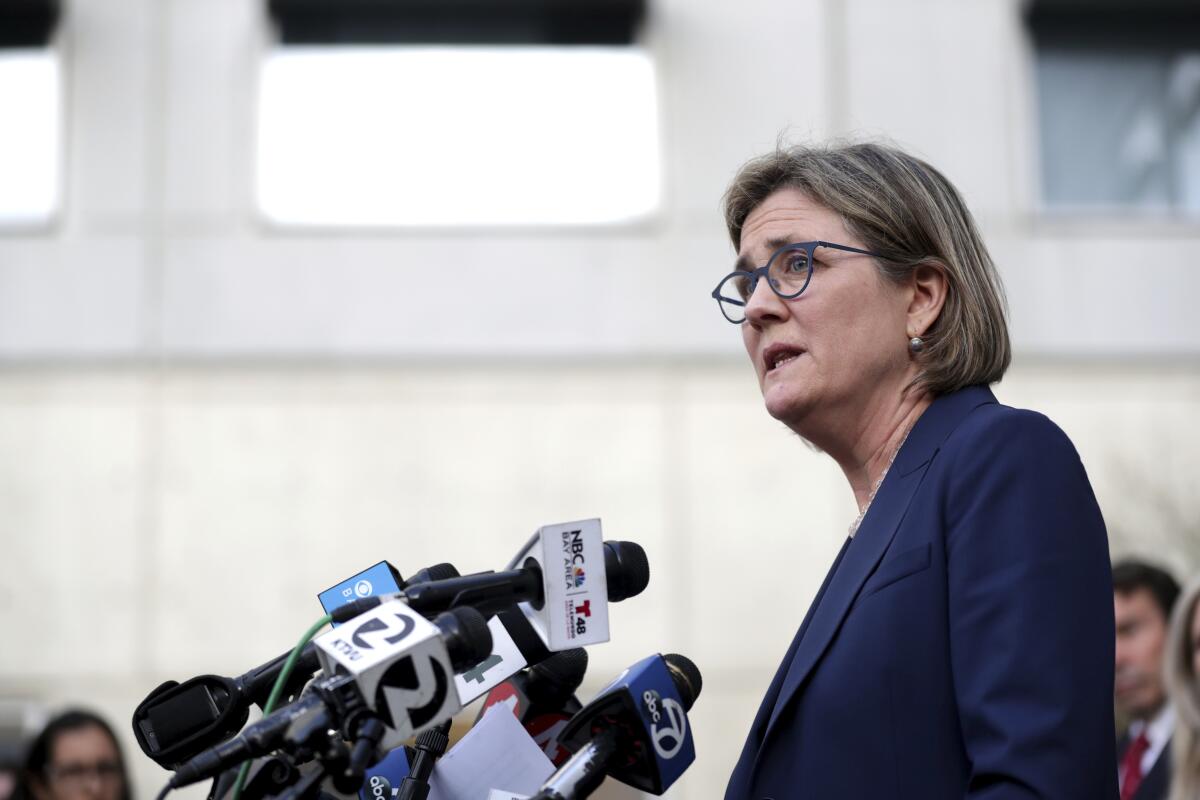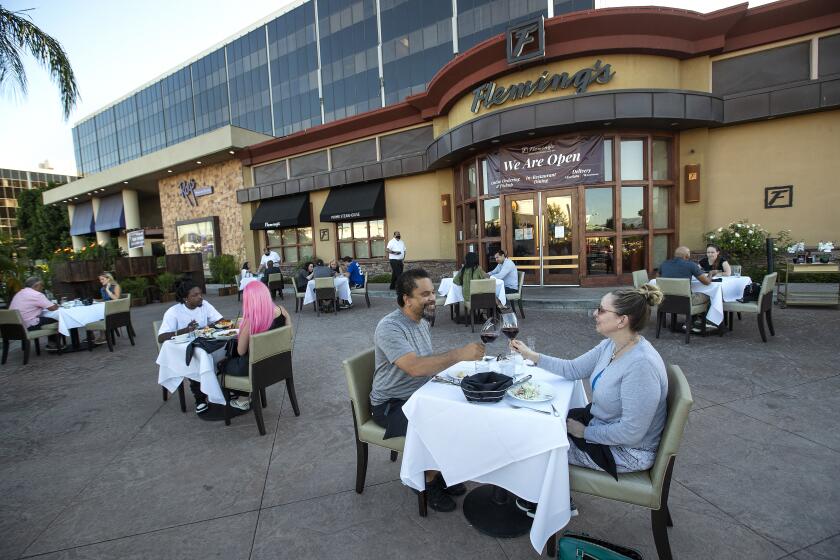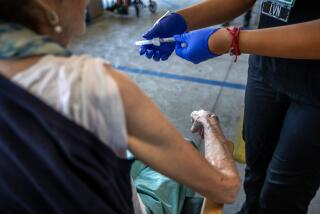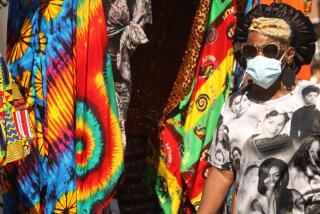Bay Area COVID-19 variants could outpace vaccine distribution, health director warns

- Share via
A Bay Area health director warned Thursday that more infectious variants of the coronavirus may be fueling a new spike in cases as numbers throughout the region flatten and even start to tick up.
“We’re back in a bit of a precarious place as far as our collective ability to curb this pandemic,” Dr. Sara Cody, public health director for Santa Clara County, said at a news conference.
She urged residents not to travel, and if they had no choice, to quarantine for 10 days when they return. She also said people should wear masks when they are with others outside their household, even if vaccinated. Available vaccines are highly effective but do not provide 100% protection.
“It is spring,” she said. “It is a beautiful day. We all have cabin fever. We all want to get out, we all want to get back to our lives. But we can’t do that quite yet.”
Cody’s warnings contrasted with more upbeat assessments by San Francisco leaders on Thursday. But the Santa Clara health director said that, after making “really good progress” and seeing consistent declines in positivity and case rates since the first week of January, the numbers have started to flatten and even rise again.
“The numbers are beginning to tick up,” Cody said. “And right now we’re in a race between the variants and the vaccine.”
A little more than a third of the county has received one dose of a COVID-19 vaccine, and about 20% is fully vaccinated, officials said. Although vaccine deliveries rose this week, the county still has too little to inoculate all those eligible for shots, they said.
Cody said trends in the county were similar to those in the Bay Area, and more vaccinations were needed to ensure that new variants don’t emerge. One variant that developed in the United Kingdom, now circulating in the Bay Area, is much more infectious than the original strain and probably more deadly. Others have been shown to be more resistant to vaccines.
Still, “you’re far more protected if you’re vaccinated than if you’re not,” Cody said, “and the more people that are vaccinated in our county and in our community, the safer we all are.”
On Thursday, California opened eligibility for the vaccine to those 50 and up, and Bay Area officials said demand exceeds available slots.
Passover began Saturday, and Easter is in one week, prompting health officials to urge the public to take precautions when gathering.
In San Francisco, Mayor London Breed said eligibility would expand in two weeks to everyone 16 and older. If vaccine delivery projections were accurate, 80% of San Franciscans would have had their first shot by mid-May, the mayor said.
The city also has approved plans for the San Francisco Giants to play before fans in Oracle Park this season, Breed said at news conference, but ticket holders will have to show proof of a negative virus test result or vaccination. The stadium will be allowed to operate at 22% of its capacity.
At least 45% of San Franciscans have received a first dose of a vaccine, and more than 62% of seniors have received both doses, she said.
Breed, who has been vaccinated, said she was feeling “a little bit more comfortable going out in public,” though she still wears a masks and tries to distance.
Without the vaccine, she said, she would not go to Giants opening day. “Now I will probably stop by and check it out,” she said.
Dr. Grant Colfax, San Francisco public health director, said at the news conference that he was optimistic, even though cases rose 20% in the city in the last week. He attributed the spike to the recent reopening.
Colfax said he believed it was safe for fully vaccinated people to gather indoors in small groups without masks. “This is yet another reason to get vaccinated,” he added.
But even the fully vaccinated should get tested if they show symptoms or are exposed to someone with the virus, he said.
“Keep the mask on, stay strong, get vaccinated when you’re eligible if it’s your turn,” he said. “ And let’s hope for the vaccine supply to improve.”
More to Read
Sign up for Essential California
The most important California stories and recommendations in your inbox every morning.
You may occasionally receive promotional content from the Los Angeles Times.












